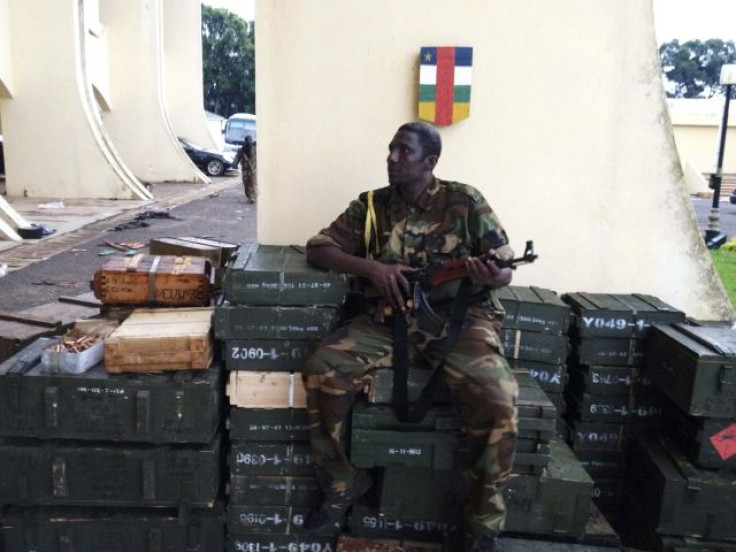Seleka Rebel Leader Djotodia Suspends Constitution; Upholds Peace Deal

The leader of Seleka rebels, who gained control of the capital of the Central African Republic, said Tuesday that he is suspending the constitution and dissolving parliament, after the president fled the country.
Leader of the Seleka rebel coalition, Michel Djotodia, pledged to name a power-sharing government, after the rebels ousted President Francois Bozize Sunday.
Djotodia said there would be a transition period until “credible and transparent” elections, during which he would "legislate by decree,” the BBC reported.
He added he would uphold a peace deal that promises elections in three years.
“I consider it necessary to suspend the Nov. 27, 2004 constitution, to dissolve parliament as well as the government,” Djotodia said in a statement.
"During this transition period which will lead us to free, credible and transparent elections, I will legislate by decree."
"We will lead the people of Central African Republic during a three-year transition period, in accordance with the Libreville Accord,” he said.
The statement could not be broadcast due to power cuts and was instead recorded and issued to the press, Reuters news agency reported.
Some 5,000 Seleka fighters swarmed the capital Bangui, Sunday after the collapse of a power-sharing deal, or the Libreville Accord, signed in January ending the Seleka rebellion that began in December last year.
The president’s ouster was condemned by the U.N. and the A.U., while the U.S., France and regional powerbroker Chad, called on the Seleka rebels to respect the Libreville Accord to create a government.
President Bozize seized power in a coup in 2003, ousting the unpopular Ange-Felix Patasse, and won elections in 2005 and 2011 by promising to return the country to democratic rule.
However, Bozize had been facing accusations of rampant corruption and the degradation of the rule of law.
Djotodia, who had served as a civil servant in Patasse’s government before its ouster, was appointed by Bozize to a diplomatic post in Sudan.
Following disagreements with Bozize, Djotodia launched a rebellion in 2005, but was arrested a year later and exiled.
Subsequently, Djotodia entered a peace deal with Bozize, only to re-launch rebellion. However, the two parties agreed again on the Libreville Accord, and Djotodia was appointed defense minister in January 2013, the post from which he would quit to oust the president.
Neighboring Cameroon confirmed Monday that Bozize had arrived there but said it was not giving him permanent refuge, the Reuters report stated.
Earlier, South African President Jacob Zuma said at least 13 South African soldiers were killed in Bangui in the battle against the rebels Sunday.
Two Indians nationals were also killed and six others seriously injured Monday by French troops at Bangui Airport, French President Francois Hollande informed Indian Prime Minister Manmohan Singh, the Press Trust of India reported.
French troops were guarding the airport when the incident took place, the report stated.
Hollande assured Singh to investigate the incident, while Singh directed that all efforts be made to ensure the safety of approximately 100 Indian nationals in the strife-torn country.
© Copyright IBTimes 2024. All rights reserved.












